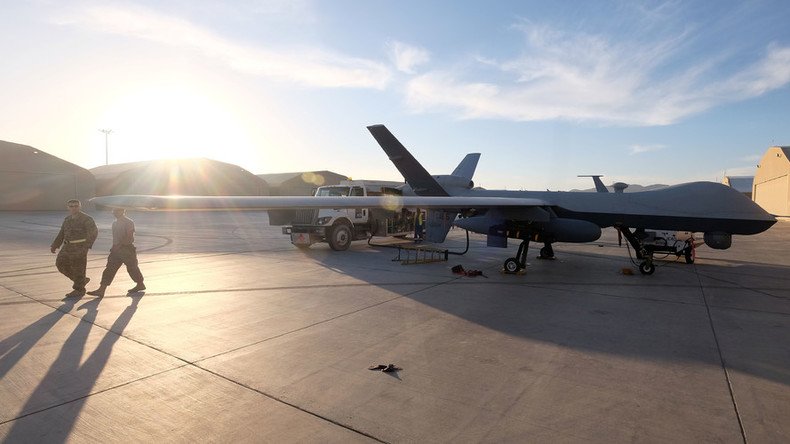Killer drones policy defended by British govt after human rights committee probe

Accusations of question-dodging from Parliament’s Joint Committee on Human Rights have forced the government to defend its shadowy targeted drone killing policy.
The response came after the committee’s chair blasted the government’s apparent unwillingness to “clarify its position in relation to the use of lethal force outside armed conflict.”
The row follows a report by the committee into the UK’s shadowy use of deadly drones flown, it is believed, from a secretive facility at RAF Waddington in Lincolnshire.
The report also concerns the use of armed drones, apparently on the orders of then-PM David Cameron, to kill UK citizens fighting with jihadist groups in Syria in 2015.
He claimed at the time the UK “took this action because there was no alternative.”
“In this area there is no government we can work with. We have no military on the ground to detain those preparing plots,” he said.
Committee chairwoman Harriet Harman said, “The Government has stated that it follows ‘detailed and developed thinking’ when applying the law to its use of lethal drone strikes but this has not been fully demonstrated in its response to our report.”
“Greater insight has been provided into the broad approach the government takes in establishing what terrorist threats merit the use of force.
“However the government has chosen not to answer the most important questions raised by our report concerning its understanding of the legal framework which governs the use of lethal drone strikes outside armed conflict,” she added.
Defending the use of such force, a government spokesman said in a statement that “We will defend the UK and its citizens against threats and have shared information widely with the committee.”
“As we advised them, where we identify a direct and imminent threat to the UK we reserve the right to act to address it.
“Such actions are only carried out as a last resort when all other options have been exhausted, and are in accordance with international humanitarian law,” the spokesman claimed.













